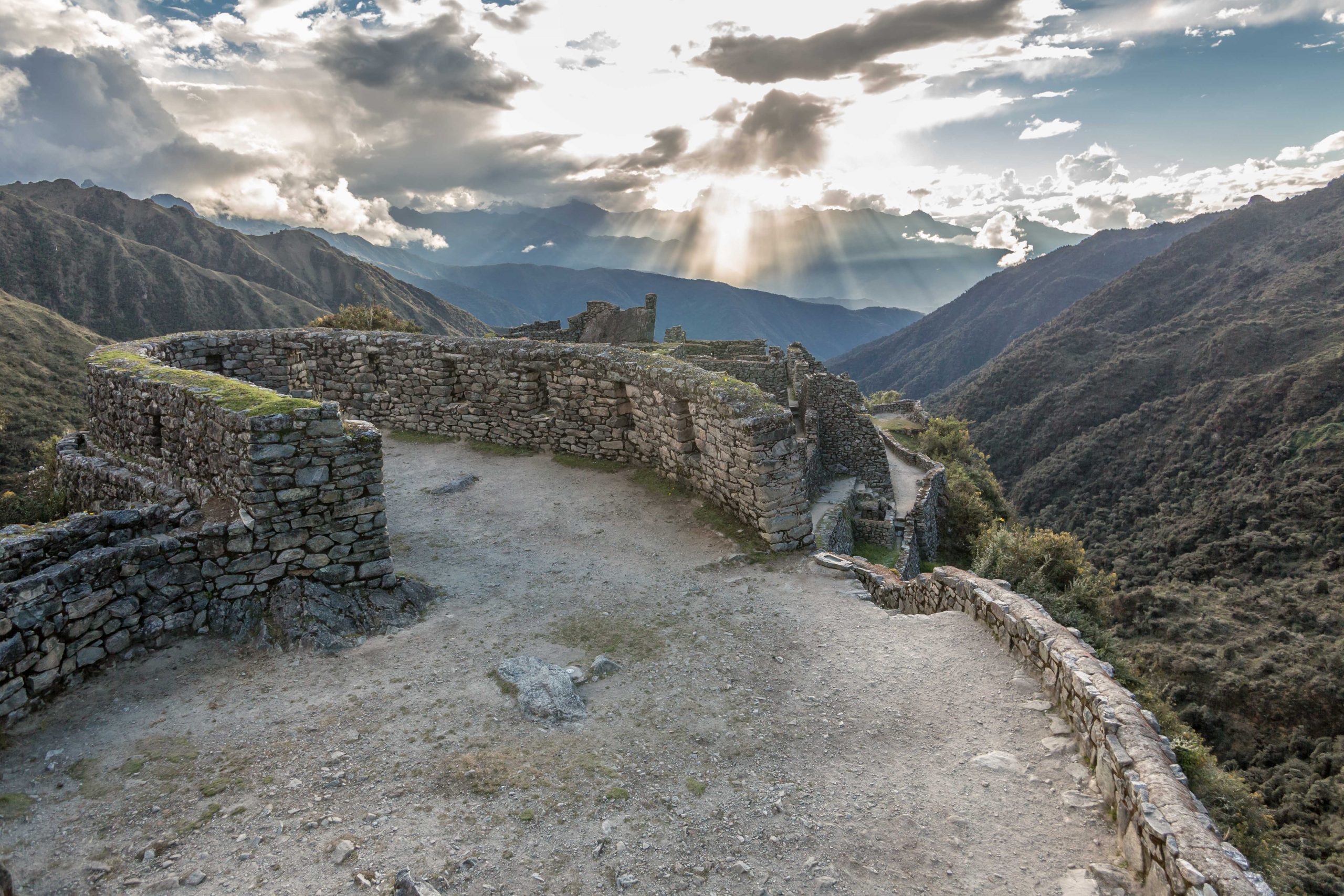
-
12 Day(s) 11 Night(s)
-
Max People : 26
-
Jan 1’ - Dec 31
-
Min Age : 10+
Description
Choquequirao Salkantay Inca Trail Machupicchu 12/11
The Choquequirao Salkantay Inca Trail Machupicchu 12/11 This whopping 12 day trek takes you on a less traveled path from Choquequirao, on to the sacred Salkantay mountain (6.271m/20569ft), one of the highest and most stunning in the Peruvian Andes, passing through Quechua speaking communities and lesser-known Inca ruins, to finally join the 4-day Classic or Traditional Inca Trail to Machu Picchu. Choquequirao Salkantay Inca Trail Machupicchu 12/11 This trek combines the best of all treks – stunning high mountain trekking and also the ruins of the Classic Inca Trail Choquequirao Salkantay Inca Trail Machupicchu 12/11.
Choquequirao via Salkantay & Inca Trail to Machu Picchu trek – at a glance
Highlights: Choquequirao ruins, remote Yanama, hiking alongside the magnificent Apu Salkantay, the varied and amazing ruins along the Inca Trail, arriving at Machu Picchu
Location: the Choquequirao, Salkantay and Inca Trail combined trek departs from Cachora, 4 hours drive from Cusco
Duration: 12 days / 11 nights
Level: difficult
Adventure rating: this is a super adventure
Inca trail: this trek includes the Inca Trail therefore is subject to the Inca trail booking restrictions. We do not consider it an Inca Trail alternative.
Departs: any day with two people. We offer affordably priced tours for 2 people so that you can depart any day. Maximum group size 10.
Day 1: Cusco – Cachora – Chikisqa
We depart Cusco at 7am in a private car for a 4 hour drive to the charming village of Cachora, situated on the edge of the Apurimac canyon and surrounded by impressive snowcapped peaks. After lunch, it is a 2 hour hike to Capuliyoc (2915 metres / 9561 feet) from where we have our first beautiful views of the Apurimac valley stretching below as well as the snow-capped peaks of Padrayoc and Wayna Cachora. Our total hiking time today is about five hours. Accommodation: Camping at Chikisqa 1950m. (L / D)
Day 2: Chikisqa – Choquequirao
Departing early, we descend to the magnificent Apurimac River (1550 metres/ 5084 feet) before beginning our climb to Santa Rosa and then onto Maranpata where we will have lunch. The climb from the river takes about 4 hours and is tough. From our lunch spot we can see the ruins of Choquequirao, from here we have two hours more hike to the ruins. (3110 metres/ 10120 feet) We will spend the late evening in the ruins, where we will watch the sunset and have the chance to see condors. Accommodation: Camping at Choquequirao campsite 3033m. (B / L / D)
Day 3: Choquekirao – Pinchaunuyoq
We have a chance to more fully explore the ruins and have a little rest in the morning. In the afternoon we will climb over a ridge to the ruins Pinchinuyoc, where we will camp the night. This is definitely the easiest day of the trip! Accommodation: Camping at Pinchinuyoc about 3000m/ or depending on the group at Rio Blanco, a further 1.5 to 2 hours descent. (B / L / D)
Day 4: Pinchaunuyoq – Maizal
After 2 hours of walking, we will arrive at the canyon of the Rio Blanco (1990 metres/6527 feet) where will have a rest before starting a difficult climb to our campsite of Maizal. The climb is 3- 4 hours. Accommodation: Camping at Maizal 3000m (B / L / D)
Day 5: Maizal -Yanama
We depart at 7am, and walk uphill for about 3 hours through semi-jungle, to the Victoria Mines. We visit the ancient mines and some Inca Ruins before climbing an hour more to the pass of Abra Victoria (4130 metres/ 13 546 feet). The newly discovered Coryhuayrachina ruins are between Yanama and Maizal and we do follow well constructed Inca steps at an area that we call “Mina Victoria” (we started calling it this because that’s what the muleeteers called it)
There are spectacular views from the pass as we descend to the charming village of Yanama. (about 2 hours walk). Accommodation: Camping at Yanama 4100m
12km including 500m descent and ascent 600m in altitude – Mina Victoria to Yanama (B / L / D)
Day 6: Yanama – Colpapampa
A day of mountain peaks. On this day we walk for seven hours, preferably rising early to appreciate the chain of snowpeaks that we can see from here. We lightly ascend to the second pass which is the highest of our trek at 4850 metres/ 15908 feet. After the pass we descend for three hours to the Valley of Totora, where will spend the night. Accommodation: Camping at Totora about 3900m or Colpampa
18km including 700m ascent and descent 1900m in altitude – Yanama to Colpapampa (B / L / D)
Day 7: Colpapampa – Ichupata
A day of botany and glaciers. Today´s hike is mostly up, as we will climb from Totora or Colpampa, upwards, to the Salkantay pass (4600m). You will clearly note the changing scenery as you pass through different varieties of plants typical of the high jungle – known in Spanish as the “eyebrow of the jungle”. You finally arrive at the pass after 5 hours of hiking. This is the second highest point of the trip. (4,600 metres/13451) All day you will have been going “against the flow” as this is a popular trekking route, but in reverse. So expect to meet a lot of people along the trail during this day. From the pass you will descend for about 2 hours to Salkantaypampa (4100m) where the group may camp, depending on how well you have progressed during the day. You might continue onwards to Ichupata.
18km including 700m ascent, and descent 500m Colpapampa to Ichupata (B / L / D)
Day 8: Ichupata – Pampacahuana
Alter a cold night, we continue our hike to start the 3-4-hour steep climb towards the Incachiriasca pass (4850m/15908ft), the equal highest of the entire route, offering impressive views of the Salkantay snow peak. After a celebratory rest on the pass we will then descend towards our lunch spot at Sisaypampa, a flat area from which one can observe the Salkantay´s neighboring valleys (it is possible that you will see condors in this area). After lunch we continue towards the Pampacahuana community, located next to an original Inca canal, where we set our second camp and spend the night.
14 km approx. (B / L / D)
Day 9: Pampacahuana – Ayapata
In the morning you will see that the valley begins to narrow and the river becomes a canal. The Incas frequently cut canals through valleys to increase the agricultural land. From Pampachuana it’s a 3 hour hike down the narrow, steep valley to the Inca fortress of Inkaracay (also known as Paucarcancha). This is a site well worth exploring and little known to the vast majority of visitors to Peru.
It’s about another ½ to 1 hours walk down to the small village of Wayllabamba which is the point that we join the Traditional (or Classic) Inca Trail to Machu Picchu. As mules are not allowed on the Traditional Inca Trail, at this point we say goodbye to our mules and muleteers and welcome our porters who will accompany us for the next few days
In the afternoon, we leave Wayllabamba behind to start our way up the Warmihuañusca mountain pass (Dead Woman’s pass) through an abrupt and steep ascent that stretches for 9 km. We only climb part way up the pass, stopping at Ayapata, where we camp and spend the night. (also known as Yuncachimpa)
12 km approx. (B / L / D)
Day 10: Ayapata – Chaquicocha
Today we continue our trek up to the highest point in the Inca Trail (but not on this trek), reaching the mountain pass of Abra Warmihuañusca (4200m/13776ft) after about 2 hours. Immediately after the pass, we descend into the Pacaymayo valley (3600m/11808ft), from which we then continue to climb to the second pass, the Abra Runkurakay (3970m/13022ft), stopping halfway to visit the very impressive archaeological complex Runkurakay. This site, located at 3800m/12464ft, consists of a small oval structure that is believed to have served the purpose of a watchtower. After going over the pass, we descend towards Yanacocha (Black Lagoon) and enter the cloud forest to finally arrive at Sayacmarca (3624m/11887ft). This is a beautiful complex made up of a semicircular construction. Only 20 minutes away is Chaquicocha – 3400m (dry lake in Quechua), where we will camp. (B / L / D)
Day 11: Chaquicocha – Wiñay Wayna
After breakfast we have an easy climb, to arrive at the third pass, the Abra de Phuyupatamarca (3700m/12136ft). Phuyupatamarca is one of the most complete and best-preserved archaeological complexes along the Inca Trail to Machu Picchu, and is located on the highest point of a mountain. Curiously, Phyupatamarca means ¨town over the clouds¨. From here we also have impressive views of the Urubamba River valley. We descend by stone to Wiñay Wayna (2650m/8692ft). At this campsite we will find a lodge with a restaurant, bar and bathrooms with hot showers. The campsite has the same name as the complex located only five minutes away from the lodge. Wiñay Wayna is an impressive complex made up of an agricultural center with numerous terraces, a religious sector and an urban sector – even if you are tired and enjoying the relative luxury of this campsite, don’t miss this archaelogical complex!
Day 12: Wiñay Wayna – Machu Picchu
On this last day we get up at 4.00 am to leave Wiñay Wayna at approx. 5am and climb to the Intipunku, or the Sun Gate. This will take an hour of hiking along a trail of flat stones on the edges of cliffs in highland jungle. From this fabulous spot, we may see the sunrise over Machu Picchu. From Intipunku we descend into Machu Picchu, and 40 minutes later we enter this famous city. We then descend to the control point where we register ourselves and leave our backpacks. We immediately begin a complete guided tour Machu Picchu that will take approximately two hours.
After your tour you can further explore the ruins by yourself or climb Huayna Picchu for that classic photo of Machu Picchu. Also try to fit in a visit to the Temple of the Moon or Uyna Huayna Picchu while visiting Huayna Picchu.
Private Service Prices 2024
1.- people US$4400 per person
2.- people US$3100 per person
3.- people US$2900 per person
4.- people US$2800 per person
5.- people US$2700 per person
6.- people US$2650 per person
7+ people US$2600 per person.
What’s included?
Round trip transfer airport hotel airport
Pre trek briefing
Collection from your hotel in the morning of trek departure.
Transport from Cusco to the trailhead at the beginning of the trek in private car (Cachora)
Entry fee to the Inca trail & Machu Picchu
Entry fee to Choquequirao ruins
Entry fees for your muleteers and cooks for Choquequirao
Entry fee for the Inca trail for your porters.
English/Quechua/Spanish speaking professional guide (you will have an assistant guide for groups over 8 people).
Tents – 2 people in a 4 person tent which allows for greater comfort, and also storage of backpacks. All tents were purchased in 07/08.
Basic foam mattress. If you require greater comfort during the trek we can hire you an inflatable mattress (eg. Thermarest) for $5 per day.
Cook and Cooking equipment (Assistants are provided for larger groups)
Toilet tent
Meals as indicated in the itinerary (optional vegetarian food). Our professional cooks prepare meals that incorporate elements of the western diet and also traditional Peruvian delicacies. (Please communicate with your guide/cook during the trek if you have a preference for certain types of dishes). Salads, if served, are washed in boiled water.
Horses (for equipment and personal items) including horsemen. They carry camping equipment, food and kitchen utensils. We provide duffel bags at your briefing for your personal items (up to 7 kg per person). If you wish to take more, you can hire an extra mule at a cost of $15 per day.
1 emergency horse which can be ridden if you are feeling ill or if are a little slower
Dining tent with camp tables and chairs & Kitchen tent for the cook to prepare meals
Tents for our staff to sleep in
First aid kit including emergency oxygen bottle – but not blister treatments as known in western countries.
Transport from Ollantaytambo to Cusco
Train ticket (Backpacker service) from Aguas Calientes – Ollantaytambo.
Bus down from Machu Picchu
Lunch final day at sanctuary lodge: http://www.sanctuarylodgehotel.com/web/omac/tinkuy.jsp.
What is not included?
Extra porter for the Inca Trail
Breakfast on the first morning
Entrance to the hot springs
Tips for the guide, cook and porters
Additional horses for passengers luggage
Travel insurance
We recommend that you bring:
A light day pack with a change of clothes for the whole period of the trek – prepare for a vast range of changes in temperature
Rain gear (jacket and pants if available) or rain poncho. Plastic ponchos can be bought for about $1 in Cusco.
Strong footwear, waterproof trekking boots recommended. Extra socks are a must.
Sandals or plastic slip on thongs are also good to give your feet a chance to breath in the evenings if you wish to carry them.
Warm clothes, including jacket, fleeces, gloves, scarf and beanie/touk. Thermal clothing is also recommended, especially for sleeping.
Sleeping bag (can be hired from us)
Torch/ Flashlight and spare batteries
Camera, films and batteries (batteries consume more quickly under cold conditions)
Hat or cap to protect you from the sun, rain and cold
Sun block
After-sun cream or hydrating cream for face and body
Insect repellent – minimum recommended 20% DEET – although no malaria risk has been reported
Toilet paper, pack in & pack out
Snacks: biscuits, energy bars, chocolate, raw fruits, muesli, etc.
Non-disposable canteen (Nalgene type) and water for the first morning.
We advise you to bring water sterilizing tablets in case you collect water from streams.
Your own medical kit with any special medications that you might require, paracetamol, second skin for blisters etc.
Small towel or sarong
Bathers/swimsuit (if you intend on swimming in hot springs)
Cash – sufficient for any extras, tips and souvenirs.
Original passport & ISIC (International Student Identity Card) if you have one.
Walking sticks or poles (we can hire these to you. Please note poles with metal tips cannot be carried into Machu Picchu)
Binoculars (if you have them)
What’s Included?
Included Services:
Experienced Guides: Our guides at Inca Land Adventures are seasoned professionals who have studied English and tourism at Cusco National University. They possess a deep knowledge of the region and are dedicated to sharing their heritage with you. Combining professionalism with a friendly demeanor, they ensure your safety and enjoyment throughout the journey.
Permits and Machu Picchu Access: To trek the Inca Trail, you need permits obtained only through licensed operators like Inca Land Adventures. Shared Group Inca Trail Trek 4d/3nUpon receiving your details and deposit, we secure your permits, which include entry to Machu Picchu. These permits are non-transferable once confirmed, although passport number updates are possible.
Pre-Trek Briefing: The evening before your adventure, join us at our office for a comprehensive briefing with your guide and fellow trekkers. Here, you’ll receive your duffel bag, which our porters will transport while you hike. Remember, pack efficiently, as the duffel should weigh no more than 7kg/14 lbs and include essential items like your sleeping bag and air mattress.
Personal Porter: We provide a dedicated porter to carry your duffel bag throughout the trek, ensuring your comfort without any additional charges. Your duffel bag will be accessible only at the evening campsite and should adhere to weight restrictions.
Environmentally Conscious Porters: Our porter team at Inca Land Adventures is known for their dedication and hard work. Adhering to strict weight limits, they handle all camping equipment and food, while also assisting with camp setup and breakdown. We prioritize the well-being of our porters, ensuring fair treatment and supporting their families through various social initiatives.
Culinary Delights: Indulge in the culinary creations of our talented chefs, who craft delicious meals for breakfast, lunch, and dinner. From nutritious soups to hearty mains and delectable desserts, every dish is prepared with care. We accommodate dietary restrictions to ensure everyone enjoys their meals.
Hydration Support: Stay hydrated during your trek with our provided clean water at each meal. We prioritize your well-being by filtering and cooling the water to combat altitude effects. Remember to bring enough water for the first morning of the trail.
Quality Equipment: Inca Land Adventures utilizes top-tier equipment, including sturdy tents and dining facilities for your comfort. Each client receives a pillow and foam sleeping pad, while dining equipment and other essentials are provided.
Hotel-to-Hotel Service: Enjoy hassle-free transportation from your hotel to the starting point of your trek and back. Our comfortable vans ensure a smooth journey, allowing you to focus on the adventure ahead.
Transportation and Train Service: Your trek logistics include bus tickets to Machu Picchu, as well as a tourist-class train journey from Aguas Calientes to Ollantaytambo. For those seeking upgraded amenities, we offer the option to upgrade to the Vista dome train for an additional fee.
First Aid and Safety: Your safety is paramount to us. Our guides undergo regular training by medical professionals and carry comprehensive first-aid kits and oxygen tanks. In case of emergencies, we ensure swift evacuation and medical attention.
Communication Facilities: Each guide is equipped with a satellite phone to address any emergencies beyond radio range. Additionally, clients can utilize these phones for non-emergency communication, providing peace of mind during the trek.
Additional Amenities: We pay attention to every detail to enhance your experience. From small comforts like pillows and rain ponchos to hot water bins for hygiene, we strive to create memorable journeys for our clients.
Taxes and Fees: Our pricing includes all taxes and permit fees, ensuring transparency with no hidden costs.
Inca Land Difference:
Ethical Treatment of Porters: At Inca Land Adventures, we prioritize the well-being of our porters, providing fair wages, essential gear, and support for their families. Our commitment extends to social initiatives aimed at improving their quality of life.
Promoting Equality: We champion diversity and inclusivity within our team, welcoming individuals of all backgrounds and genders. Our goal is to achieve gender parity, empowering women to excel in roles traditionally dominated by men.
Sustainability: Inca Land Adventures is dedicated to sustainable tourism practices, minimizing environmental impact and promoting responsible travel. We prioritize leaving no trace on our treks and support local communities through eco-friendly initiatives.
DISCOUNTS.- 18 to 25 years old: $30 USD Information required on student card: name of university, student name, photo of student, expiration date etc. A copy of the card is required at booking for government approval for discount.
Under 18 years old: $30 USD Please send us a copy of your passport at the time of booking.
Under 11 years old: $40 USD Please send us a copy of your passport at the time of booking.
Group of 5 or more: $30 USD – All you need is to book the trek together at the same time.
EXTRAS
Sleeping Bag –$30 USD per person per trek (It will be clean and warm)
Air Mattress –$25 USD per person per trek (Therma rest mattresses)
Walking Poles -$20 USD per pair per trek (Professional poles that can be extended)
Personal tent- $35 USD – (Tent is for single trekkers only)
Vista dome Train Upgrade –$75 USD per person (Return Only)
Huayna Picchu Mountain –$75 USD per person (Please request when you book your Trek)
Machu Picchu Mountain – $75 USD per person (Please request when you book your Trek)
Single supplement-$35 USD per night (for solo travelers with single room)
**Huayna Picchu and Machu Picchu Mountain are optional treks within Machu Picchu Citadel which do not include a guide. The climb is usually done on your own after your tour of Machu Picchu Citadel. If you would like the extra hike to be guided, please request in advance. There is an extra cost for this extra guided tour.
ADDED VALUES FOR FREE
TRANSFER – from the Airport to Hotel (Cusco Only)
DUFFEL BAG– included in the trekking price!
BOILED WATER is included along the Inca Trail
OXYGEN TANK will be available along the trek
PLASTIC RAIN poncho made by Inca Land Adventures is included.
TIPS FOR OUR PORTERS
IMPORTANT: Some of the reasons that our price may be higher than that of other agencies are the following:
We ALWAYS book the maximum number of porters possible (according to Inca Trail regulations) so that our porters are not overloaded.
Also, We are the only travel operator in Peru that supplies porters with proper tents, sleeping pads and adequate food for this type of activity. Shared Inca Trail Trek 4d/3n
We always we take care our horseman’s and horses during our alternative treks so tipping it will be the seem as for the porters
Beware of this when booking they might be cheaper because of this!
2 people (minimum group size) should have a maximum of 7 porters and 16 people (max group size) should have 22 porters.
** Tips for porters, cooks or guides are optional and are NOT included in our price. However, our advice is that you tip our staff based on their performance, service and knowledge. Our guidelines for tipping our staff are the following: Shared Inca Trail Trek 4d/3n
Each porter gets 100 Soles, each assistant cooks 150 Soles, the Main Chef gets 300 Soles. make sure to tip more if your trip it is more than 5 days or if it is luxury treks
Assistant Tour guides can be tipped collectively by the members of the group, we suggest a 5% of the total cost of the tour Shared Inca Trail Trek 4d/3n.
Main guides are tipped on a one-on-one basis and based on their performance. Tour guides are professional people who spend a lot of time training in different other fields such archaeology, history and WFA. We suggest people to consider tipping our guide a 10% to 15% of the value of your tour.
Train included in all tours is the Expedition train (to Ollantaytambo). Train times will only be confirmed once full amount of tour is paid. The earliest train you could take is the 2:55 PM or 15:20 pmand the 08:30 PM being the last train (high season June to September). We will organize the transport back to Cusco (by taxi or by bus).
ZERO PLASTIC BOTTLES ON THE INCA TRAIL AND MACHU PICCHU
Due to New government regulations for the Inca Trail, it will be 100% PROHIBITED to TAKE PLASTIC WATER BOTTLES. We believe that in the first days the new enforced regulations may NOT be 100% controlled however as the days go it will be more and more strict therefore, WE KINDLY suggest you getting your aluminum plastic bottles to avoid any disappointment at the check points along the Inca Trail and in the Machu Picchu citadel.
Inca trail trek 4d3n shared service to avoid using single-use plastic on the Inca Trail or any other hiking adventure, you can follow these environmentally friendly practices:
Water Bottles: Bring a reusable water bottle or hydration bladder. You can refill it at water stations along the trail or use water purification methods such as water filters or water purification tablets.
Inca trail trek 4d3n shared service Food Containers: Carry reusable containers for your snacks and meals. Use lightweight, durable containers that can be washed and reused throughout the trip Inca trail trek 4d3n shared service.
Cloth Bags: Pack your items in cloth or reusable bags instead of plastic bags. These bags can be used to store snacks, carry trash, or separate wet items.
Personal Care Products: Use eco-friendly alternatives for personal care items such as biodegradable soap, shampoo bars, and toothpaste tablets. Avoid single-use travel-sized toiletries that come in plastic packaging.
Straws and Stirrers: Skip single-use plastic straws and stirrers altogether. If you prefer using a straw, consider bringing a reusable one made of stainless steel, bamboo, or silicone.
Wet Wipes: Instead of disposable wet wipes, carry a small pack of reusable cloth wipes or a microfiber towel that can be rinsed and reused.
Trash Management: Ensure you have a dedicated bag for collecting and carrying your trash. Properly dispose of it in designated waste bins at the campsites or bring it back with you and dispose of it responsibly.
Inform and Educate: Share your commitment to reducing plastic waste with fellow hikers and local guides. Encourage them to adopt eco-friendly practices as well.
Remember, the Inca Trail and other natural areas are fragile ecosystems, and it’s important to leave no trace behind. By minimizing plastic waste, you can help preserve the beauty of these destinations for future generations.
HEALTH CONCERNS.- You must be honest with your guide about any health conditions or concerns you might have. While our guides are not medical professionals, they do have first aid training. We also work with a clinic in Cusco that can help assist our team.
You are responsible for assessing whether a Tour is suitable for you. You should consult your physician to confirm your fitness for travel and participation in any planned activities. You should seek your physician’s advice on vaccinations and medical precautions. Inca Land Adventures will not provide medical advice. It is your responsibility to assess the risks and requirements of each aspect of the Tour based on your unique circumstances, limitations, fitness level, and medical requirements.
If you develop extreme altitude sickness or any other illness that prevents you from hiking, and you still wish to visit Machu Picchu by train, we will work with you to coordinate this trip. Since this will be a new trip, it may require additional fees. We will use as much of the original itinerary to keep costs low.
If you experience issues while hiking and cannot continue, a porter will accompany you to the closest road and wait while a car comes to pick you up and bring you to the nearest health clinic.
GROUP TOURS.- Group tours are made up of all different types of people, with various hiking skills and ages. By agreeing to a group tour, you agree that some people might be slower or faster than you are. Everyone can go at their own pace for the trek, and the guide will work with the group to spend time with everyone. Groups might request some modifications to the tour, and the guide will work with everyone to make the best decision for the group Shared Inca Trail Trek 4d/3n.
STRIKES.- Unfortunately, strikes are frequent in Peru and can disrupt our tours. Roads are often blocked, and trains stopped. We will make sure your trek continues as planned, even if that means leaving the night before your start date. Under these circumstances, tours might need to be canceled. But our operations department will coordinate with you in this situation. Your safety is always our top concern and will dictate how we decide.
LOST ITEMS.- You are responsible for your items throughout the Tour. Please be diligent about where you leave your things and remember to remove all items from our vans, your tents, restaurant, etc. Do not leave anything unintended during your hike. Other trekkers or teams might pick it up not knowing whose it is.
TRAVEL INSURANCE.- Travel insurance is inexpensive and strongly recommended. With trips being planned months ahead of time, you never can predict what could happen. Adventure travel includes more risk than the average trip. Insurance is a way to protect the investment you have made on this journey. We can help recommend an agent to walk you through this type of insurance if needed Shared Inca Trail Trek 4d/3n.
WEATHER.- Of course, the weather is unpredictable. Typically, the dry season in Cusco is from April through October, but this does not stop rain from falling in June or the sun from coming out in December so just be prepared. No matter what month you are doing the trek, make sure that you have rain gear that includes a waterproof jacket, pants, poncho, and waterproof gloves. Many people forget about gloves, but being cold and wet makes hiking very unpleasant Shared Inca Trail Trek 4d/3n.
Also, prepare for four seasons. Several of the treks through the Andes involve various microclimates and you will need to be prepared. Layers are always key since they are easy to adjust to different temperature changes. Be prepared with a warm packable down jacket since the evening will be cold Shared Inca Trail Trek 4d/3n.
It’s also important to note that the weather can change a listed itinerary. There are times that routes become impassable, and our guides will be forced for your safety to rework your tour.
ALTITUDE.- As soon as people book their trip to Peru, specifically Cusco, they start wondering about altitude sickness. The air at high altitudes contains less oxygen than at sea level and forces your body to work harder to get the oxygen it needs. Over several days at high altitude, your body adjusts to the lower amount of oxygen in the air. For this reason, we always recommend spending at least two days in Cusco before beginning any trek in the Andes. Cusco is a marvelous city with lots to do, so if you have more time to acclimate you won´t be bored Shared Inca Trail Trek 4d/3n.
With altitude sickness, you may first feel like you have the flu or a hangover. You may have a headache, tiredness, loss of appetite, nausea or vomiting, dizziness, trouble sleeping, trouble breathing during exercise. If any of these effects become severe, please contact our office, and we will help you get to a doctor Shared Inca Trail Trek 4d/3n.
Most of the time, these symptoms will be mild. We always recommend easing into activity slowly, allowing your body to adjust. Drink plenty of fluids such as water or coca tea. Coca tea has been used since ancient times to help prevent altitude sickness. Leaves from the Coca Plant contain alkaloids that help bring oxygen into your blood, helping your body avoid the effects of altitude sickness. Avoid drinking a lot of alcohol and coffee. They will cause you to urinate more often and become dehydrated. Avoid smoking. Smoking makes it more difficult for your body to get oxygen. Avoid sleeping pills. They may cause shallow breathing at night, making it more difficult for your body to absorb oxygen while you sleep Shared Inca Trail Trek 4d/3n.
Remember the trek to Machu Picchu is not a race. Even those in the best shape will suffer from altitude sickness if they race to the top of the mountain too quickly. Go slow, and it will give your body time to adjust to the elevation Shared Inca Trail Trek 4d/3n.
Your healthcare provider may prescribe medications, such as acetazolamide and dexamethasone, to help prevent altitude sickness. Start the medicine two days before you get to a high altitude. Continue to take it while you are at high altitude Shared Inca Trail Trek 4d/3n.
You must remember that this is your holiday and you do not want to stress out about the possibility of getting sick from the mountains. Do everything slowly and drink lots of water, and enjoy the coca tea. If anything does happen and you, unfortunately, get sick, let your guide know right away. Land Adventures guides are trained to help you get through it Shared Inca Trail Trek 4d/3n.
GETTING TO CUSCO.- The airport in Cusco currently is only for domestic flights, so all international travelers by plane must disembark in Lima and go through Customs. Even if your flight to Cusco is the same day by the same airline carrier, you must grab your bags in Lima and then check them back in.
The best way to get to Cusco is by air, and there are several options in airlines. LAN tends to be the most expensive but has the most options and flights. Expect delays or flight cancellations. Due to the high altitude of Cusco, it tends to be difficult to land, and any acclimate weather will stop air traffic. Bus travel is always available, and while the trip can be long, especially from Lima, the buses in Peru are very well maintained and comfortable. This option is strongly encouraged if coming from a city closer to Cusco, like Puno. Lima buses will take about 20 hours to arrive Shared Inca Trail Trek 4d/3n.
MACHU PICCHU ENTRANCE TIMES.- Machu Picchu now has two different time windows of when you can visit: either morning or afternoon. Your entrance ticket will be for only one session, morning session, and when your time window is over, the Rangers will ask you to leave Shared Group Inca Trail Trek 4d/3n.
MORNING SESSION: 6AM – 12PM
AFTERNOON SESSION: 12PM – 5:30PM
** If you have tickets to hike either Huaynapicchu or Machu Picchu Mountain, you will have some extra time until 2:30PM.
If you would like to spend the whole day at Machu Picchu, we can add an afternoon session ticket to your booking for $75 per person Shared Inca Trail Trek 4d/3n.
Packing List
ESSENTIALS.-
Passport
Vali, STUDENT CARD (if you booked as a student)
Immigration Card (given on the plane as you enter Peru)
Good daypack (the smaller, the better)
Water storage: Water reservoir like Camelbacks is encouraged – but enough for at least 2-3 liters.
Comfortable hiking boots (lightweight with good soles)
FOR YOUR DUFFEL.- Porters will carry up to 6 kg of your personal items. This must include your sleeping bag and air matt (if you bring/rent one). From us these two items weigh 3.5 kg Shared Inca Trail Trek 4d/3n.
2-3 wicking t-shirts
2-3 hiking pants
4 sets of undergarments.
4 sets of hiking socks
1 Fleece
1 Warm, down jacket: gets very cold at night
1 Rain jacket and pants
1 sun hat
1 wool hat
Headlamp: essential
Waterproof gloves (even if they are ski gloves, take them)
Comfortable shoes for camp
Walking boots
Waterproof jacket/rain poncho
Quick dry towel. We provide small ones; you might enjoy something a little larger.
Small bottle of soap: we provide warm water each day to clean – might make you feel fresh if you had a little soap.
Battery Charger: There is no place to plug in while trekking!
Large plastic bags: to help organize and keep clean from dirty.
Sleeping bag: Recommend down bags for -10C at least
The Local Payment (Payment of final Balance). – can be paid in cash and in US dollars or Peruvian soles (if paying in Soles it will be applied the exchange rate of the day).
Cancellations.- Deposit sent for is Non-Refundable nor transferable to any other date, person or tour (According to Inca Trail and Machu Picchu Regulations).
Inca Land Adventures must be notified of any changes or cancellations to your trip as soon as you are aware of them, via e-mail so that we do not incur expenses not covered by deposit.
Once final balance has been paid, we will not be able to refund your trek payment in the case of cancellations. There will, however, be parts of your trip that you are able to use (Machu Picchu entrance fee, 1 train ticket, 1 bus ticket).
A claim letter for your insurance company can also be provided by us upon request.
Porter service hired can Not be cancelled (a fee is paid for booking this service).
Send us your main Departure date and back up date: By providing us with a main date and a backup date for your trek (classic Inca Trail, Lares, Salkantay, etc) you automatically authorize Llama Path to use either of these dates for your reservation. Llama Path within the next 48 hours (after you have sent us your booking form and confirm deposit was made) will send you an electronic receipt confirming your trek has been officially booked and also to confirm the exact departure date of your trek.
Sending your Personal Details for Booking: Your passport number and other information must be valid. Please advise if you change your passport number after booking the tour (especially for booking the classic Inca Trail as if we do not make a change in your official details, you may not be permitted to do the trek). Please Note changing passports’ numbers requires an extra fee (we are able to change passports numbers easily on our receipt but it’s also extremely important that we make the changes with the Inca Trail authorities) and please is important that the information that you send need to be exactly as appear in your passport.
.
$2,400.00
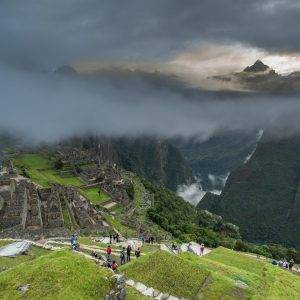
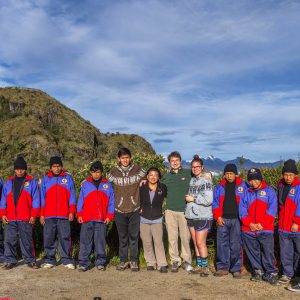
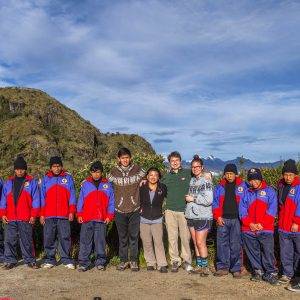
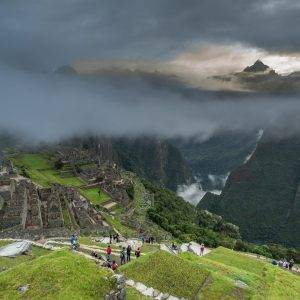
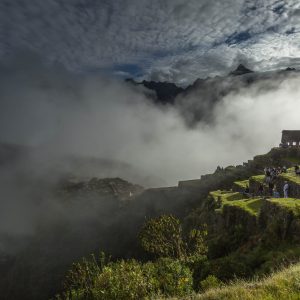
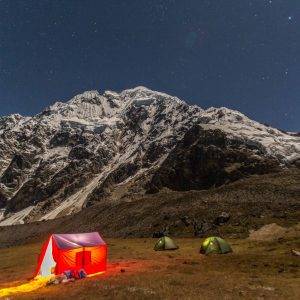
Be the first to review “Choquequirao Salkantay Inca Trail Machupicchu 12/11”